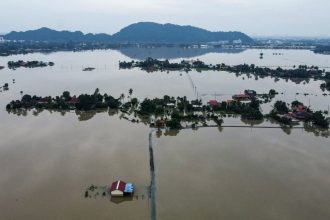Malaysia has taken center stage in promoting peace and stability across Southeast Asia as Prime Minister Datuk Seri Anwar Ibrahim announced that Thailand and Cambodia will officially sign a historic peace pact at the upcoming ASEAN Summit.
The agreement, brokered under Malaysia’s chairmanship, resolves a deadly border conflict that has long strained relations between the two nations. The signing ceremony will be witnessed by U.S. President Donald Trump alongside other global leaders, marking a significant diplomatic milestone for the region.
“We were successful in helping to solve the border dispute between Cambodia and Thailand,” Anwar told Parliament. “Their defence ministers have finalized the detailed terms of the peace agreement, and the signing will be witnessed by President Trump, who supports this resolution, as well as myself.”
Anwar also revealed Malaysia’s role in persuading Myanmar’s military leadership to agree to a ceasefire and allow humanitarian aid to reach civilians affected by both conflict and a devastating earthquake earlier this year.
This year’s ASEAN chairmanship, led by Malaysia, has championed the idea of “ASEAN Centrality” — a framework emphasizing collective action and cooperation among member nations. Unlike neutrality, which implies distance, ASEAN Centrality encourages dialogue, engagement, and regional solidarity in addressing challenges like trade, security, and cross-border tensions.
“Neutrality suggests silence,” Anwar explained. “Centrality means active engagement — to interact, communicate, and resolve interstate problems together.”
The 47th ASEAN Summit, set to take place in Kuala Lumpur from October 26 to 28, will gather leaders from all ten ASEAN countries plus Timor-Leste, which is on track to become the bloc’s 11th member. Other key dialogue partners such as the United States, China, Japan, Brazil, and Canada are also expected to participate.
While there was initial uncertainty about President Trump’s attendance, his participation now underscores Washington’s renewed interest in Southeast Asia’s stability and Malaysia’s growing diplomatic influence in the region.








